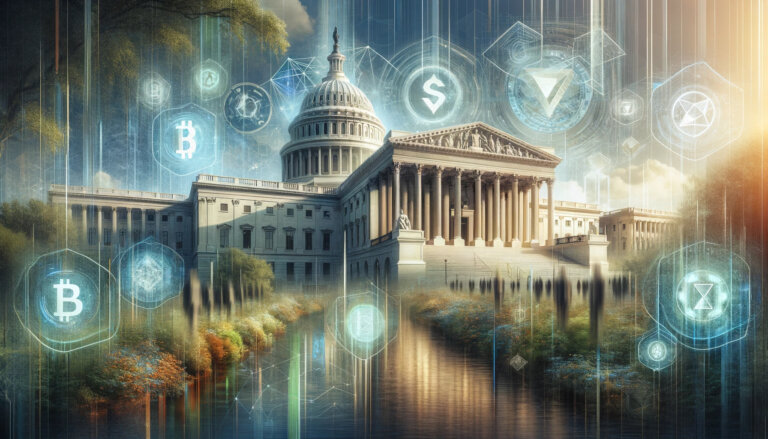 ‘I’d close it down’: Jamie Dimon endorses crypto ban in Senate hearing
‘I’d close it down’: Jamie Dimon endorses crypto ban in Senate hearing ‘I’d close it down’: Jamie Dimon endorses crypto ban in Senate hearing
Lawmakers and bank CEOs aligned in their support of stronger AML regulations in crypto markets at an annual oversight hearing.

Cover art/illustration via CryptoSlate. Image includes combined content which may include AI-generated content.
At the “Annual Oversight of Wall Street Firms” hearing before the Senate Committee on Banking, Housing, and Urban Affairs on Dec. 6, Senator Elizabeth Warren (D-MA) questioned bank CEOs about illicit financial activities involving cryptocurrencies as part of a broader effort to advance regulatory legislation. Present at the hearing were the CEOs of JPMorgan, Wells Fargo, Citigroup, Morgan Stanley, Goldman Sachs, and more.
Senator Warren used her time to direct attention to the use of cryptocurrencies for illicit finance. Warren cited estimates that $20 billion in crypto transactions last year funded criminal organizations and rogue regimes. She called for updating laws so that anti-money laundering regulations cover cryptocurrencies like traditional banking.
Cryptocurrency, she declared, “is the new way today’s terrorists bypass the Bank Secrecy Act.” She quoted alarming statistics, such as an estimated $20 billion in illicit crypto transactions last year that funded various dangerous criminal activities. She elaborated:
“Now laws clearly need to be updated, but crypto lobbyists are working overtime to block any legislation. They claim crypto is special, and it shouldn’t have to comply with the Bank Secrecy Act, even if that means letting terrorists and drug traffickers and ransomware criminals and rogue nations move billions of dollars. Totally unrestricted.”
Rather than calling for crypto bans, Sen. Warren called for barring the use of crypto by criminal organizations, terrorists, and rogue nation-states. JPMorgan CEO Jamie Dimon, however, went further, agreeing that the predominant use case for cryptocurrencies is currently among “criminals, drug traffickers, anti-money laundering [violations], tax avoidance.”
Dimon took the most hardline stance of the day. While conceding that the anonymous nature of crypto transfers was not quite accurate, he drew attention to the ability of a crypto network to move large amounts of money anywhere instantaneously without moving past any regulatory checkpoints:
“You can move money instantaneously because it doesn’t go through, as you mentioned, all these systems we have built up over many years—know-your-customer, sanctions, OFAC; it can bypass all of that. I if I [were] the government, I’d close it down.”
In addressing these concerns, Senator Warren advocated for extending anti-money laundering rules to cryptocurrencies. The time for Congress to act is now, she urged, highlighting the necessity of preventing terrorist attacks or rogue nations’ programs from being financed through unregulated crypto transactions.
Rules and regulations
Although the CEOs unanimously agreed that cryptocurrencies should be subjected to the same anti-money laundering rules as traditional banks, they voiced consistent pushback against perceived overregulation in their own industry.
The discussion on cryptocurrencies was part of a broader hearing on financial regulations. The bank CEOs warned lawmakers about the potential economic impact of the proposed new regulations. They expressed concerns about the proposed “Basel Endgame III” rule and others, citing fears that these regulations could impede lending, harm small businesses, and adversely impact the broader economy.
While these banking giants are pushing back against what they perceive as onerous regulations, there is a unanimous agreement among them for the need for cryptocurrencies to fall under anti-money laundering rules. In their view, this is a necessary step towards preventing the misuse of these digital assets for illicit activities in a rare moment of agreement between banks and their regulators.
































































